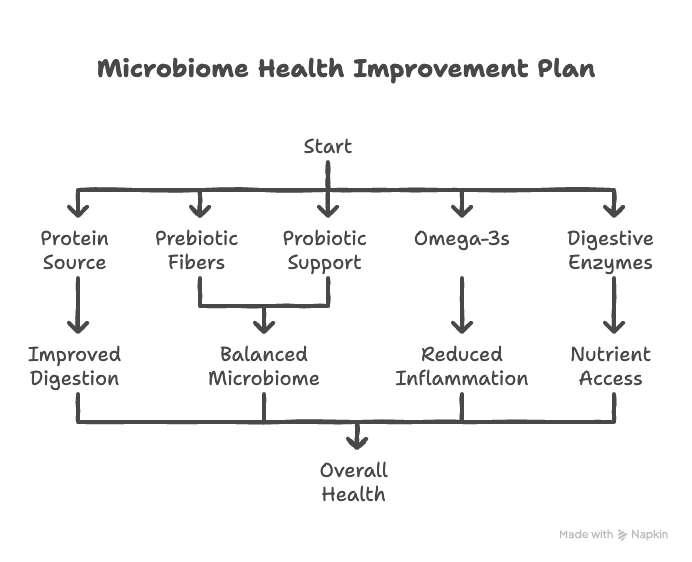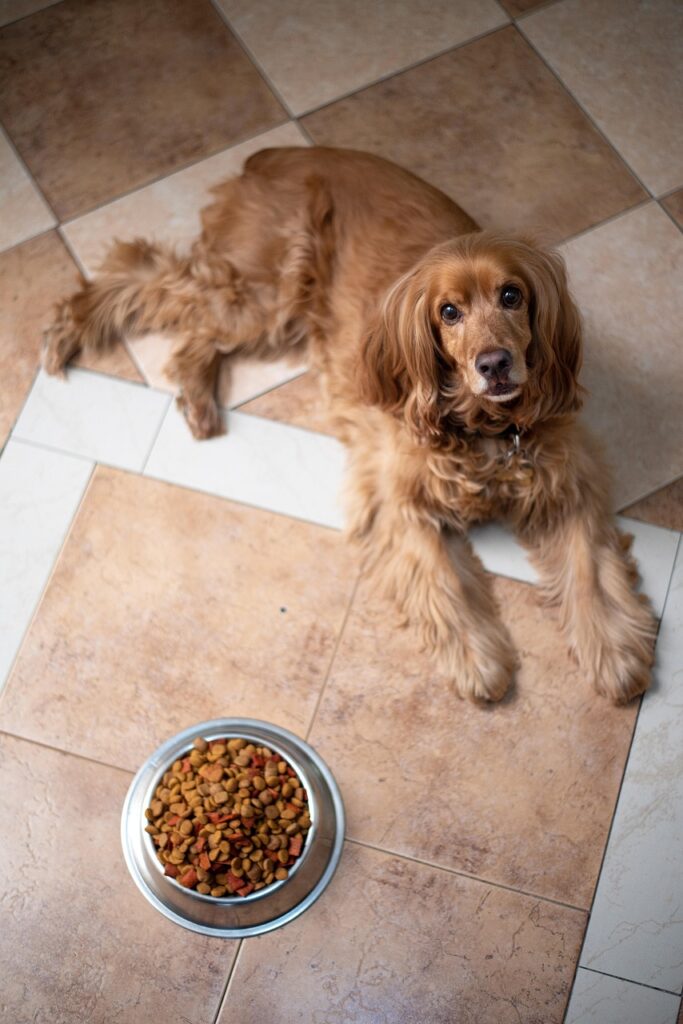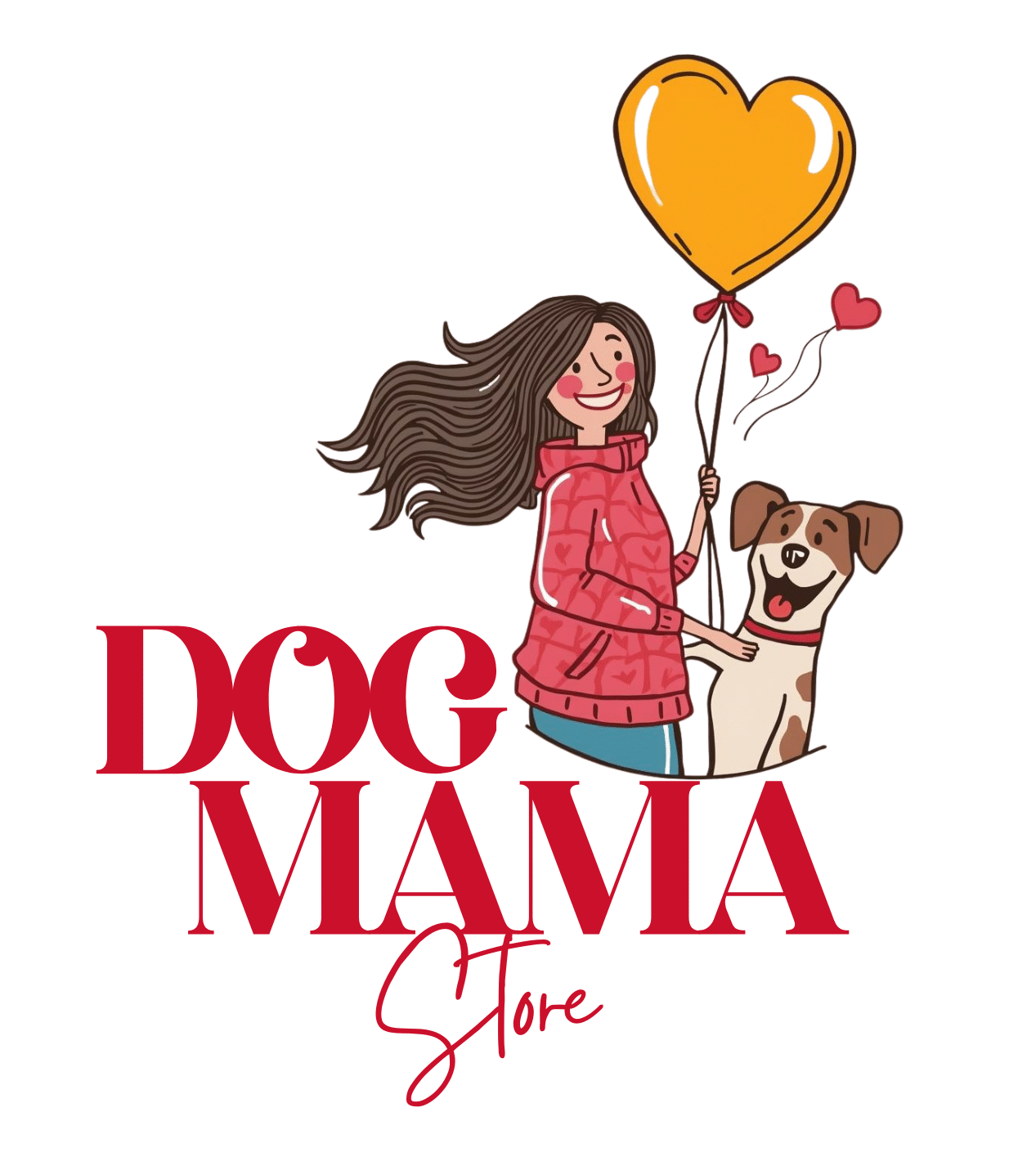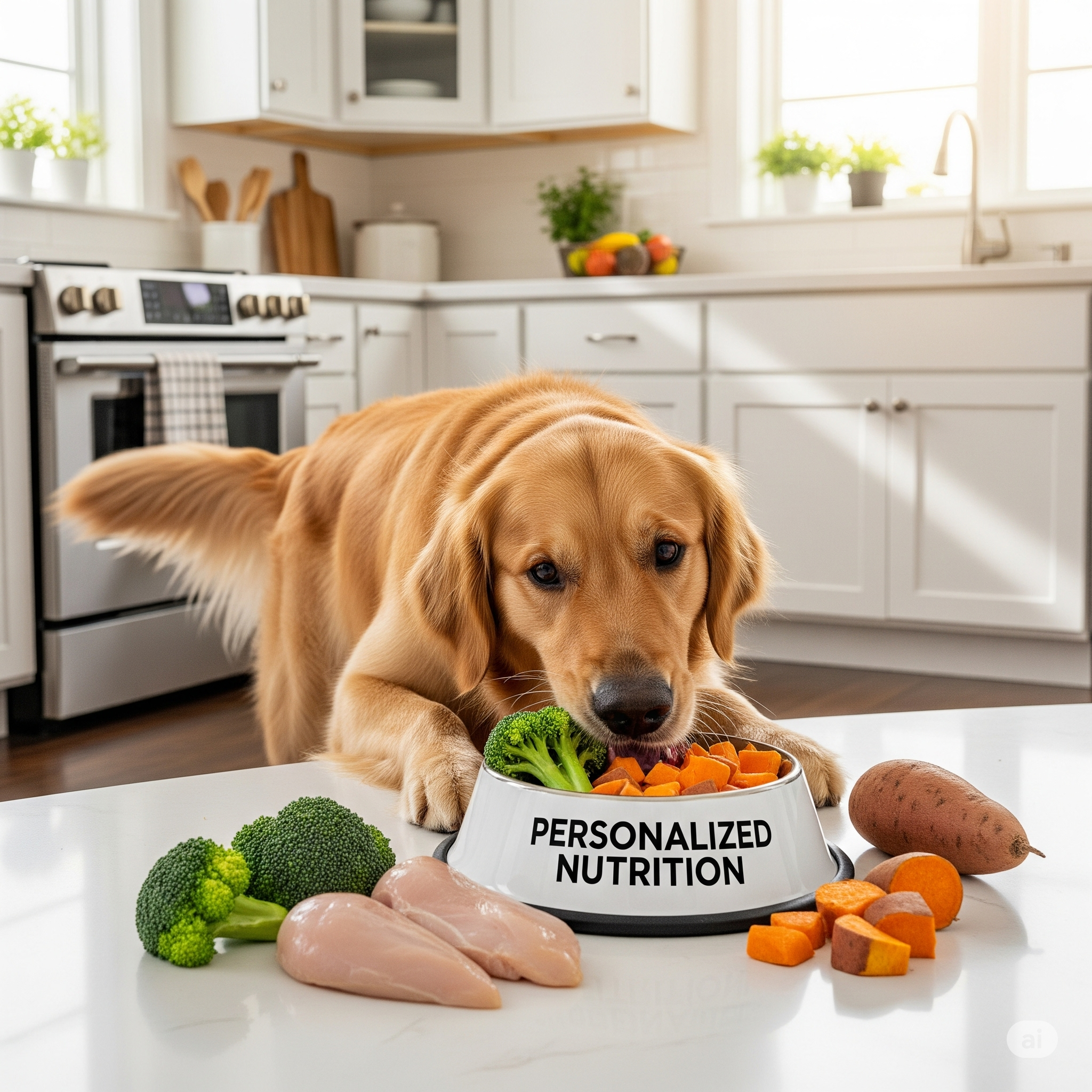Introduction
Personalized dog nutrition has completely changed how I care for my dog, Pluto. The more I learned about the dog gut microbiome, the more I realized just how much this hidden internal world affects our pets—from digestion and energy to skin health, immunity, and even behavior. It’s like discovering a control panel for Pluto’s overall well-being.
I’ve always believed in doing my homework when it comes to Pluto’s food, but diving into microbiome science has taken it to another level. With tools like gut health testing and personalized diet plans, I’ve unlocked a whole new way to support his vitality—backed by real data, not guesswork.
In this post, I’ll walk you through everything I’ve uncovered: how the microbiome works, what personalized dog diets really mean, how testing can guide smarter choices, and what kinds of foods, supplements, and trends are truly worth exploring. Plus, I’ll share a few extra resources that have helped me make more informed decisions for Pluto—with the goal of helping your dog thrive, too.
The Canine Gut Microbiome: Your Dog’s Inner Ecosystem
The first time I heard about the gut microbiome in dogs, I’ll admit—I thought it sounded like something out of a science fiction novel. But as I started reading more (especially after listening to an ISAPP podcast with microbiome expert Dr. Jan Suchodolski), it quickly became clear this wasn’t just hype. Our dogs carry a complex, ever-evolving community of bacteria, fungi, and microbes inside their digestive tracts. And just like in humans, that internal balance (or imbalance) plays a huge role in their overall health.
What fascinated me most was how diverse and individual each dog’s microbiome really is—almost like a fingerprint. It made me realize why generic diets or “one-size-fits-all” kibble might miss the mark. Pluto’s microbiome is unique to him, so his diet should be, too.
When the gut microbiome is in balance, it supports nutrient absorption, immune defense, mood regulation, and even keeps skin and coat looking their best. But when things are off—what’s called dysbiosis—dogs can experience everything from mild tummy troubles to chronic inflammation.
While Pluto doesn’t have visible issues, I wanted to be proactive. Learning how to support a healthy gut before problems appear just made sense. I started looking into microbiome testing, probiotic-rich foods, and how diet personalization based on microbial data could fine-tune his nutrition.
That’s when things really started to click—and why I believe gut-first care is the smartest way forward for dog lovers like me.
Personalized Diet Plans: Tailoring Nutrition to Your Dog’s Unique Gut
Once I understood how central the gut microbiome is to Pluto’s overall health, I started exploring personalized nutrition. It turns out, the concept isn’t just for humans—dogs can benefit from gut-based customization, too.
I ordered a canine gut microbiome test (yes, it involves a stool sample—Pluto wasn’t thrilled), and the results blew me away. The report gave insight into:
- Which types of bacteria were thriving
- Which beneficial strains were missing or low
- How well his gut was managing inflammation and nutrient absorption
- Personalized suggestions on diet, supplements, and lifestyle
From there, I worked with a certified canine nutritionist to adjust Pluto’s meals. Here’s what we focused on:
🔍 Key Adjustments Based on Microbiome Data:
- Protein Source: Switched to single-source proteins like turkey or salmon, which are easier to digest and less likely to cause inflammation.
- Prebiotic Fibers: Added natural sources like chicory root, pumpkin, and flaxseed to feed good bacteria.
- Probiotic Support: Chose strains recommended by the report (like Lactobacillus acidophilus) to promote balance.
- Omega-3s: Added wild fish oil to reduce gut inflammation and support the microbiota.
- Digestive Enzymes: Included plant-based enzymes to assist with food breakdown and nutrient access.

It wasn’t about reinventing Pluto’s diet—it was about fine-tuning it. And honestly, I found the process kind of exciting. Knowing I’m not guessing but using real science to guide my choices gave me peace of mind.
Coming up, I’ll share more about foods, supplements, and how I approach common gut-related concerns—all with Pluto’s happy, wagging approval.
Absolutely! Here’s the next ~300 words, continuing in first-person, and introducing a relatable, empathetic story of a friend’s dog. This section gently highlights gut-related concerns and how a personalized approach made a difference—while staying informative, real, and emotionally resonant:
Addressing Gut-Related Concerns Through Diet: A Friend’s Story
While Pluto’s journey into personalized nutrition has been proactive, I saw firsthand how transformational it could be when my friend Jenna’s dog, Milo, started having issues.
Milo is a sprightly little terrier mix with endless energy—but out of nowhere, he started showing signs of discomfort. Jenna noticed:
- Frequent loose stools and gas
- Mild skin flare-ups and itching
- A duller coat, even though he was eating “premium” kibble
- Low energy, especially after meals
She tried switching foods, cutting out grains, adding supplements—but nothing really helped. It was frustrating, and I could tell she felt defeated. Watching Milo scratch at night or shy away from his bowl was heartbreaking.
That’s when I mentioned the gut microbiome testing I’d done for Pluto. Jenna gave it a try, and the results were eye-opening. Milo’s gut showed low microbial diversity and signs of dysbiosis—likely triggered by past antibiotics and a high-carb commercial diet.
With guidance, she made some key dietary changes:
- Introduced novel proteins like venison and rabbit to reduce inflammatory load
- Removed unnecessary fillers and added whole food toppers like steamed veggies and bone broth
- Started a probiotic blend designed for dogs with GI sensitivity
- Added slippery elm bark as a gentle gut-soothing herb
Within weeks, Milo was more himself again—playful, shiny-coated, and eager at mealtime. Watching him bounce back reminded me that gut health is not a trend—it’s a foundation.
Seeing what worked for Milo made me even more grateful I’d started Pluto’s journey before issues showed up. Every dog is different—but every dog deserves a diet that supports their unique internal world.
Absolutely! Here’s a 300-word section under “Key Dietary Components for Optimal Dog Gut Health”, broken into two H3 subsections as per your structure, using bullet points, first-person storytelling, and a couple of quotes from credible sources.
Key Dietary Components for Optimal Dog Gut Health

The Power of Probiotics and Prebiotics for Dogs
When I started digging into gut health for Pluto, one of the biggest game-changers was learning how probiotics and prebiotics work together. I’d heard of them in human nutrition, but the impact they can have on dogs? Eye-opening.
- Probiotics are live, beneficial bacteria that help balance the gut. I use a dog-specific blend with Lactobacillus acidophilus and Bifidobacterium longum.
- Prebiotics are the “food” for probiotics—non-digestible fibers like inulin, pumpkin, and chicory root that help good bacteria grow.
- Together, synbiotics (probiotic + prebiotic) offer synergistic benefits for gut healing and immune support.
- Pluto now gets a daily topper of goat milk kefir and a sprinkle of flaxseed—and his energy is next level.
“Probiotics can restore microbial balance and help prevent diseases influenced by gut dysbiosis.” — Frontiers in Veterinary Science
Addressing Common Gut-Related Concerns Through Diet
I’ve seen how diet shifts can turn things around—especially after watching Milo’s transformation (my friend’s dog). While Pluto didn’t struggle, I now recognize early red flags in other dogs.
Some signs your dog might need gut-supportive diet changes:
- Diarrhea or inconsistent stool
- Itchy skin or recurring ear infections
- Foul-smelling gas or bloating
- Dull coat or constant paw licking
Simple but powerful ingredients to support gut health:
- Pumpkin & sweet potato: Gentle fibers that aid digestion
- Lean proteins: Like turkey or white fish for sensitive tummies
- Bone broth: Rich in collagen and soothing to the gut lining
“A healthy gut supports nutrient absorption, protects against pathogens, and influences mood and behavior.” — Oxford Academic
Next, I’ll break down popular diet trends—and how to choose what’s best.
Sure! Here’s the next 300-word section, continuing with the same friendly, first-person tone, including another relatable dog story and bullet points for clarity. This section will focus on “Navigating Diet Trends and Choices for Gut Wellness.”
Navigating Diet Trends and Choices for Gut Wellness
As I’ve learned more about Pluto’s nutrition, I’ve realized how many diet options there are—and how confusing it can be to pick the right one. From grain-free to raw, each has passionate supporters and critics. I want to share some insights and a story that might help you navigate this maze.
Grain-Free vs. Grain-Inclusive Diets
- Grain-free diets became popular because many believe grains cause allergies or digestive upset.
- However, research links some grain-free diets to a rare heart condition called dilated cardiomyopathy (DCM) in dogs.
- Grains aren’t inherently bad; many dogs digest them well and benefit from their fiber and nutrients.
- If your dog doesn’t have a diagnosed grain allergy, a balanced, grain-inclusive diet might be safer and just as healthy.
My friend Sarah’s dog, Bella, struggled with skin allergies and digestive upset for years. Sarah switched Bella to a grain-free diet after advice from a breeder. At first, Bella seemed better, but after a year, Bella developed lethargy and was diagnosed with early heart issues. Sarah switched Bella back to a vet-recommended balanced diet that included grains and added probiotics. Bella’s energy and coat health improved dramatically within months. This taught me how important it is to choose diets carefully—and always consult a vet.
Raw Food Diets: Pros and Cons
- Raw diets can improve coat shine and digestion for some dogs.
- But they carry risks of bacterial contamination (like salmonella) and nutrient imbalances if not carefully planned.
- I’ve heard from dog owners who swear by raw feeding, but it requires time, expertise, and vet guidance to be safe.
“When considering diet trends, always prioritize balanced nutrition and veterinary advice.” — ScienceDirect
Choosing the right diet is about your dog’s unique needs, lifestyle, and health goals. I’m excited to share how supplements can complement these choices in the next section!
Beyond Diet: Essential Nutritional Supplements for Dog Digestion
While Pluto’s diet forms the foundation of his gut health, I’ve found that some carefully chosen supplements can make a big difference in digestion and overall well-being. Here are some supplements I’ve researched and even incorporated:
Digestive Enzymes
- Help break down proteins, fats, and carbs more efficiently.
- Particularly useful for dogs with slower digestion or older dogs whose enzyme production declines.
- Can reduce bloating, gas, and improve nutrient absorption.
Omega-3 Fatty Acids
- Found in fish oil, these reduce gut inflammation and support the mucosal lining of the digestive tract.
- Also great for skin and coat health, joint support, and cognitive function.
- I make sure Pluto gets a dose recommended by our vet, balancing benefits and quality.
Herbal Supplements
- Natural soothing agents like slippery elm and marshmallow root calm irritated digestive tracts.
- These herbs have been used traditionally for their anti-inflammatory and mucilage properties.
- I always double-check with a vet before introducing herbal remedies to avoid interactions.
Probiotic and Prebiotic Supplements
- While diet supplies some prebiotics, supplements can help restore gut bacteria after antibiotics or illness.
- Probiotic strains tailored for dogs (like Lactobacillus and Bifidobacterium) can improve immune function and reduce allergy flare-ups.
A friend of mine, Jake, had a dog named Max who faced chronic digestive issues despite a healthy diet. After adding a vet-recommended probiotic and omega-3 supplement, Max’s digestion improved noticeably, and he was more playful and less prone to skin irritation. It reminded me how supplements can truly support what diet alone can’t fix.
Trusted Sources and Helpful Resources
Throughout my journey with Pluto and learning about personalized dog nutrition, I’ve leaned heavily on reputable research and expert advice. The studies from places like the University of Toronto and insights from veterinary microbiome specialists, such as those featured in the ISAPP podcast, have been invaluable. For a deeper dive into gut health and diet plans for dogs, the detailed reviews from Oxford Academic and research updates at the Harvard T.H. Chan School of Public Health provide great scientific backing.
Also, when it comes to keeping dogs mentally healthy along with physical wellness, I found this great resource on DIY dog brain games for anxiety incredibly helpful. Mental stimulation and gut health often go hand in hand since a happy brain supports a healthy digestive system. Linking nutrition and enrichment like this rounds out a truly holistic approach to your dog’s well-being.
If you want to dive deeper into microbiome testing or specific dietary adjustments, consulting with a vet or a certified canine nutritionist is key. Personalized nutrition isn’t just a trend—it’s a meaningful way to unlock your dog’s best health, backed by science and real-life success stories.
Conclusion
Personalized dog nutrition, rooted in gut microbiome science, has transformed how I approach Pluto’s diet and overall health. By tailoring food and supplements to his unique internal ecosystem, I’ve witnessed firsthand the incredible benefits of a balanced gut—from better digestion to increased energy and a shiny coat.
This journey shows that every dog is different, and there’s no one-size-fits-all diet. Microbiome testing and thoughtful diet planning open doors to managing allergies, digestive issues, and even behavioral concerns with precision and care. But remember, any changes should be guided by your veterinarian or a certified nutritionist to ensure safety and effectiveness.
If you’re ready to unlock your dog’s optimal health, start by exploring their gut microbiome and incorporating probiotics, prebiotics, and carefully selected foods. Combine that with mental enrichment (like the brain games I mentioned earlier) to support both body and mind. Personalized dog nutrition isn’t just a strategy—it’s a lifestyle that can make your furry friend happier, healthier, and more vibrant every day.

